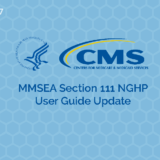How Attorneys in Washington and Other States Should Prepare Their Clients and Themselves for Lump-Sum Settlements
Last month, Washington state governor Jay Inslee signed a bill into law that will allow injured workers to receive Workers’ Compensation (WC) settlements as lump-sum settlements for the first time. Included in the bill, S.B. 5046 was an emergency clause that made it take effect immediately once it was signed. Previously, injured workers in Washington state were required to receive WC settlements via structured settlement (annuitized) payments over time. The COVID-19 Pandemic may have influenced this change and only time will tell if the decision will be good for the State of Washington. Funding of WC settlements by structured settlements have always provided a sort of safety net so that if a WC claimant failed to preserve settlement funds in any one year, there would be another round of funding to help cover the medical needs of the claimant going forward.
Are There Risks with Lump-sum Settlements?
Lump-sum settlements offer the advantage of receiving money immediately, which can be helpful when large bills are looming overhead. However, injured workers who receive lump-sum settlements are naturally prone to misuse the medical portion of their settlement funds for several reasons. Disregarding any malicious intent, its not uncommon for misuse to occur due to:
- Lack of Expertise – Inability to seek or negotiate for the best price on products and services due to a lack of knowledge about fee schedules, rates, coordination of benefits, medical billing department practices and policies, and negotiation.
- Dependence on Willpower – Decisions are at the mercy of the beneficiary’s self-control.
- Outside Influences – Life circumstances, including needs and wants, or even manipulation by family members or friends creates pressure to spend imprudently.
Workers’ Compensation claimants may face sanctions from the Centers for Medicare & Medicaid Services (CMS), the agency charged with administering the Medicare program, which include denial of future medical care under Medicare for the WC related injury that was compensated, and obligation of repayment to Medicare for conditional payments made by Medicare, which can potentially be up to double the amount owed or otherwise carry high interest on unpaid Medicare Secondary Payer statute (MSP) debt. However, consequences of misuse of funds are not limited to just the claimants. Their attorneys may also share responsibility.
What Does This Mean for Attorneys in Washington State?
Attorneys in Washington, and any other state that allows lump-sum payments for Workers’ Compensation settlements, must make every effort to ensure that their clients are considering Medicare’s future interest in their settlement and have a plan for future care that will protect Medicare from being prematurely billed for any injury related and Medicare allowable future medical component of the WC settlement. CMS identifies the legal support providing why an attorney could be in its cross-hairs as a target of a MSP recovery penalty for a claimant’s misuse of funds in its April 22, 2003 memorandum.
- CMS may sue for repayment from all parties involved in the settlement, including the claimant’s attorneys. Double damages may also be sought against the “primary payer” under the authority of 42 CFR 411.24(c)(2), and if the government is unable to recover against the “primary payer,” against the “beneficiary.” 42 CFR 411.24(l)(1).
- CMS outlines the “ethical and legal obligations” of attorneys representing Workers’ Compensation claimants when their clients chose to “ignore Medicare’s interests in a Workers’ Compensation case,” citing to the CFR section that gives CMS a claim against the attorneys.
How to Protect Future Medicals and Your Own Future
For the protection of all parties involved, CMS highly recommends Professional Administration for a Medicare Set-Aside account. It effectively eliminates or significantly reduces the likelihood of misuse of MSA funds, assuring the settling parties remain in compliance with the letter and spirit of the MSP thereby protecting both the claimant and attorney. Additionally, Medivest’s Professional Administration services can often stretch the medical portion of the settlement funds, helping to ensure that medical funds are available for a longer period of time than if self-administered.
Medivest can help you navigate through Medicare Secondary Payer compliance complexities while you work toward a desired settlement outcome. Call us to today to speak to one of our highly trained settlement consultants for a free lien and MSP futures case consultation. For more information about Medivest or to refer a case, please call 877.725.2467 | Monday – Friday 8 am to 5 pm EST.







